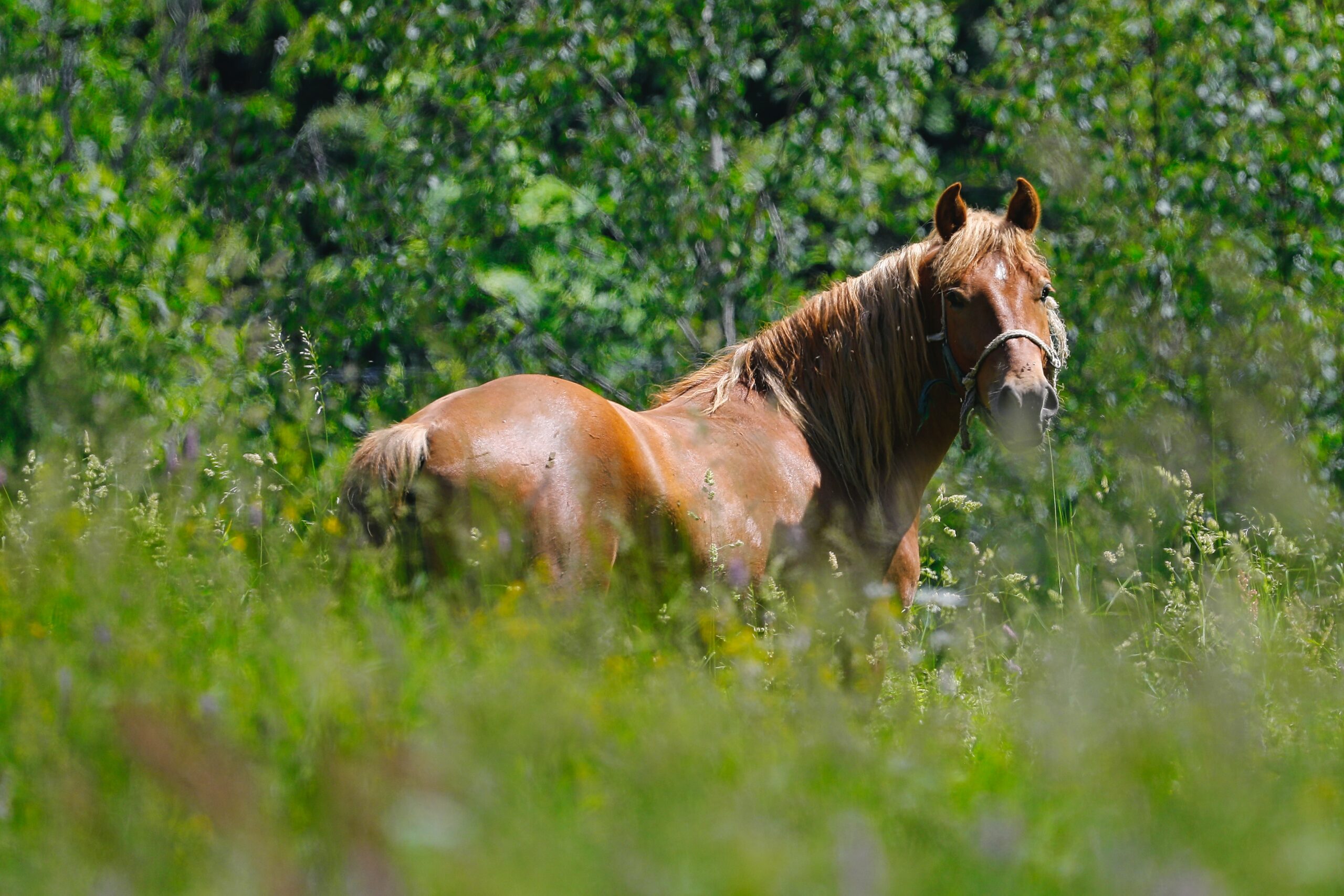Hey there, it’s your pal Jack again. I’m back with another tale from the world of horse ownership, and this one’s a doozy.
You know how people say “too much of a good thing can be a bad thing”? Well, that definitely applies to horses and grass.
As a herbivore, a horse’s diet should consist mainly of grass and hay. But as it turns out, too much grass can actually lead to colic.
Colic, for those who don’t know, is abdominal pain in horses. It can range from mild discomfort to severe, and in extreme cases, it can be life-threatening.
As a horse owner, it’s something you always have to be on the lookout for.
But can too much grass really cause colic? Let’s dive in and find out.
Table of Contents
The Lowdown on Grass
Horses are designed to graze on grass and other plants, and for good reason. Grass is an important source of roughage, which helps keep their digestive systems running smoothly.
However, too much grass can actually be a bad thing.
When horses graze on grass, their digestive system is constantly working to break down the plant material. This can lead to a build-up of gas in the intestines, which can cause colic.
Other Factors to Consider
Of course, grass isn’t the only factor to consider when it comes to colic. Other possible causes include:
- Poor diet: A diet that’s high in grains and processed feed can lead to digestive issues.
- Lack of water: Dehydration can cause colic.
- Parasites: Internal parasites, like worms, can cause colic.
- Stress: Just like humans, horses can get stressed out, and this can lead to digestive issues.
- Changes in routine: Horses are creatures of habit, and sudden changes in their routine (like a change in feed or environment) can lead to colic.
How to Prevent Colic
So, how can you prevent colic in your horse? Here are a few tips:
- Provide your horse with plenty of roughage: Make sure they have access to hay or pasture at all times.
- Keep their water clean and fresh: Check and refill their water bucket at least twice a day.
- Regularly deworm your horse: Follow a schedule recommended by your veterinarian.
- Try to minimize stress: Keep their environment as consistent as possible, and avoid sudden changes.
- Consult with your vet: They can help you come up with a feeding and care plan that’s tailored to your horse’s individual needs.
FAQs
Is grass always bad for horses?
No, grass is an important part of a horse’s diet. However, it’s important to monitor their grass intake and to provide them with a balanced diet that includes roughage like hay.
Can colic be treated?
Yes, colic can be treated, but it’s important to act fast. Mild cases may be resolved with changes to the horse’s diet and environment, but more severe cases may require medical intervention.
If you suspect your horse is experiencing colic, contact your veterinarian right away.
Is colic always serious?
Colic can range from mild to severe. In some cases, it may resolve on its own or with simple treatment, but in more severe cases, it can be life-threatening.
It’s always important to monitor your horse for signs of colic and to seek veterinary care if necessary.
Grass Grief Conclusion: Green Ain’t Always Good
So there you have it, folks! While grass is an important part of a horse’s diet, too much of it can lead to colic.
As always, it’s important to pay attention to your horse’s health and to consult with a veterinarian if you have any concerns.
And let this be a lesson to us all: sometimes, more isn’t always better. Just because something is “good” for us (or our horses) doesn’t mean we should overdo it.
Moderation is key.
Until next time, keep on truckin’ and remember: a happy horse means a happy owner. Or at least, that’s what I’m told.
